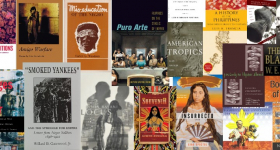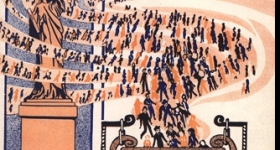"I don’t know if it’ll help you at
all, but I feel like it’s a message I should tell you: with Jesus, there is no
culture."
These were
the words spoken to me by a well-meaning church friend. Sadly, it’s a view that many of my white Christian friends appear
to hold.
It’s
written in the first book of the Bible that God created humans in his image and
likeness. If I -- a Chinese American woman -- am created in the image and likeness of
God, does that not necessitate that my culture also reflects, however imperfectly,
the image of God?
I am a first-generation
Chinese American and the first Christian in my family. I was raised by an
immigrant mother who came to America as an adult and raised me to be more Chinese
than American. My mom has never assimilated into the dominant white American culture.
But the “hyphen” has been forced onto me, and has always been part of my
identity. I am both Chinese and American, and it’s not easy to reconcile the
two. When Chinese culture tells
me that my family, my blood, is the most important thing, how do I reconcile
that with American culture, which tells me that individual freedom is
paramount?
Relating to
my mom has become increasingly difficult over the years, because she doesn’t
see why I often feel so conflicted, so torn between my Chinese and American
identities. I was trying to explain this to my friend at church when she told
me: "With Jesus, there is no culture." Instead of being heard, I was shut down -- in
a place where I thought I was safe, a place I thought I belonged. Her response
made me feel as if she didn’t see me; didn’t want to understand an issue that
sits so deeply in my heart and is part of who I am.
It’s a view
I have often encountered among churchgoers in this country. As a Christian, my
identity first and foremost is supposed to be "child of God." I believe that’s
true, but why should that make my cultural identity irrelevant? Too often,
faith communities in the U.S. do people like me a great disservice by telling us
that our cultures and communities are unimportant.
I love
being in community with fellow believers of all cultures and ethnicities.
Personally, I see what a difference it has made in my life. I grow more than spiritually; I grow holistically, in every way.
But I’ve also seen attempts to choke off diversity for the sake of "community." Oftentimes, people cannot easily understand or define their own culture. They feel undefined, and so they think all other things must be as well. They believe that God is
anti-culture, or "colorblind," because they don’t know who he is or who they
are.
In our
often undefinable American culture, we like to categorize. We like to control.
We like to understand. And when we can’t understand something – like another
person’s culture -- we make it an "other." Un-American. Unimportant. But this
is a place where so many people have come to make a new start for themselves; to build a
new legacy. Our nation is new every day, refreshed and redefined by the diverse
people who pour into it. My church could be like that, too, and so could other
faith communities, if people weren’t so afraid.
When you see me, you have to see all of me in order to speak to my life
and understand who I am. My Chinese American identity must and should be
acknowledged by those who want to acknowledge and embrace me -- including those
with whom I worship. The faith at the center of my life is supposed to welcome
people from all culture -- so why would anyone attempt to make it
monochromatic? Why don’t we try harder to truly see and understand and
celebrate one another as we are?
***
Miki Gao loves Jesus, the Anaheim Ducks, sunshine, and pandas. She has just moved back to California from the Pacific Northwest.









Comments